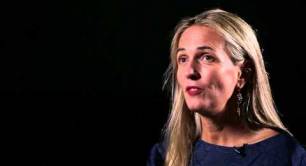Sustainable Development Goals fail to recognise role of business
The 17 Sustainable Development Goals (SDGs) and their 169 associated targets fail to recognise the importance of business as a force for social change concludes a new report by the British Council and Social Enterprise UK (SEUK).
The Think Global, Trade Social report, which was created with support from the World Bank, is being launched in Washington D.C. today and states “it may not be too late" for the SDGs to consider the role social enterprises can play in global development.
Backing the report is Nobel Prize Winner Muhammad Yunus, who said: “Putting social and environmental purposes in the driving seat of business is the only way to ensure an equitable and sustainable economy for the 21st century.”
The report reviews the considerable achievements and also the substantial failures in the global effort to meet the previous set of global targets, the Millennium Development Goals. As economies grow, inequality remains entrenched. In Indonesia between 2002 and 2011 the economy grew by an average of 5.62% per year, while income inequality worsened by an average of 3.14% per year over the same period.
It argues that in order to meet the new set of goals, which are being launched in New York at the end of the month, there needs to be more market-led models which focus on the poorest on the planet, protect the environment and ensure that the benefits of economic growth are more equitable.
Linda McAvan, MEP and chair of the international development committee of the European Parliament said: “2015 is a pivotal year for our planet and people. Whilst we have made some progress in achieving our development goals for the new millennium, the challenge is growing.
“Aid alone cannot be our response. Global sustainability and the nature of the economy will be shaped by entrepreneurship and the terms on which we create and do business with each other.”
The research demonstrates the impact the social economy is already having on a global scale. In the USA social enterprises account for 3.5% of GDP, which is more than the contribution of Silicon Valley, and in France this figure increases to 10%. In South Korea the social economy, which includes newer types of social enterprises as well as more established cooperatives, accounts for 3% of GDP and in Kenya cooperatives account for 45% of GDp, which is more than the contribution of either the public and private sectors.
It is fundamental that the business community...gets behind the Sustainable Development Goals.
The report recommends that governments “put in place policy frameworks to support more socially and environmentally responsible business practice”, for example “creating appropriate incentives through their tax, procurement and regulatory regimes for business to behave with greater social and environmental responsibility”. It also calls for "further research into and measurement of the contribution of social enterprise to GDP, innovation, jobs, equality and opportunity and social capital”.
Dr Mairi Mackay, global head of social enterprise at the British Council said: ‘In delivering our programme, we have seen many examples of the beneficial economic and social impacts that social enterprises are bringing to communities worldwide. And we know we cannot solely rely on traditional philanthropic approaches to stem the tide of inequality and address our biggest challenges.
“This is why mainstreaming social enterprise and social investment in our economic models and aid delivery will be essential if we are to meet our ambitious SDG targets.”
The research sets out the scale of global financial flows in order to shed light on the means and mechanisms available for delivering more sustainable global development. It finds that the impact investment market is currently worth $10.6bn and recommends that “the G20 should build on and learn from the experience of the 2013 G8 Global Impact Investment Taskforce”.
Speaking at the 2015 Wildhearts GEL Summit in London before heading to the airport for his flight to Washington D.C., CEO of SEUK Peter Holbrook said: “We all know that governments cannot and will not succeed in achieving these SDGs alone. It is fundamental that the business community, with all of its power, all of its assets and economic heft gets behind the Sustainable Development Goals.
“By making simple switches not only will you help achieve the objectives of the goals around shared prosperity, but my betting is you can also take your business to a new competitive edge.”
To read the full report, please click here.
Header image taken in Nairobi, Kenya. Photo credit: Jameel Winter



